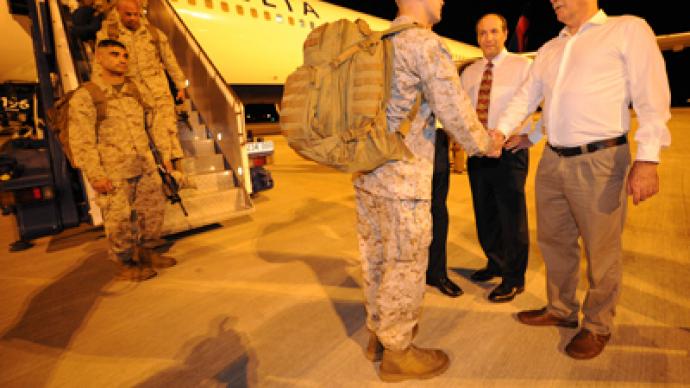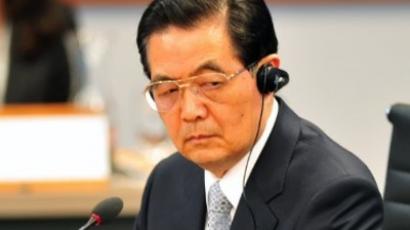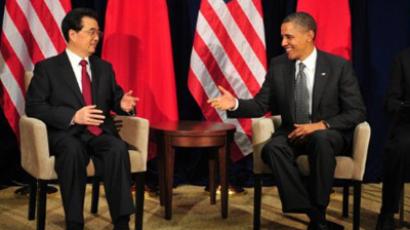2,500 US marines in Australia ‘not a military base’

The first rotation of about 200 US marines has arrived in Australia on a six-month training deployment. A total of 2,500 troops are expected to arrive over the next few years in Darwin to enhance the US’s military presence in the Asia-Pacific.
In November, US President Barack Obama and Australian Prime Minister Julia Gillard announced plans to expand the US military presence in Australia. The two leaders had agreed to increase bilateral military cooperation and training in this way.Despite the fact that the US’s final military presence in the country is to grow into a 2,500-person Marine Air Ground Task Force, Australia’s defense minister Stephen Smith insisted Wednesday morning that the marines and their entourage cannot be qualified as a military base.''We don't have United States military bases in Australia and we're not proposing to,'' he told ABC radio from Darwin, where he greeted the marines together with the US Ambassador to Australia, Jeffrey Bleich.The first group of marines is scheduled to conduct joint military exercises with the Australian Defence Force as well as traveling to some neighboring nations for the same purpose.The US contingent in Australia is expected to be a rotational force. Its different units will be moving through for short periods of time and will not be based in Australia permanently.Chinese officials have already questioned whether the US’s new military alliances in the region are aimed at encircling China in order to prevent it from becoming a global power.Barack Obama dismissed these fears when announcing the deployment. Back then, he stressed that it was not an attempt to isolate China, adding that Washington welcomes "a rising, peaceful China."However, Stephen Smith did mention the rise of China and India in his speech, saying that the world needs to “come to grips” with this fact and respond adequately. He also added that having the US marines in Australia would enhance such efforts.The tropical port of Darwin of Australia’s Northern Territory is located 500 miles from Indonesia. The location is seen as being of the highest strategic importance in view of the escalating disputes over sovereignty in the South China Sea.
Geopolitical sandwich
New Zealand-based Asia specialist, Tim Beal, says the hospitality may backfire on the nations involved.“Obviously, the United States is very worried about the rise of China and is taking moves to counter that,” he told RT. “Now, we have the marines going into Darwin – this is in effect an American base. It may not have the legal basis of the base, as we might have had 20-30 years ago, but that’s essentially what it is.”One of the fundamental problems here, Beal explains, is that a number of states willingly get themselves caught between the declining United States and rising China. In this way, Japan, Taiwan, Australia and New Zealand become subordinate to the complicated ties between the two giants.“They have to work out how they are going to cope with this. These countries are foolishly getting themselves into this long-term deteriorating relationship between the United States and China, and they really need to think more seriously about it,” he concluded.














